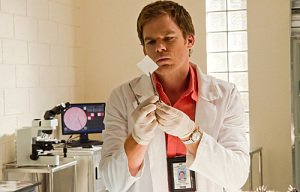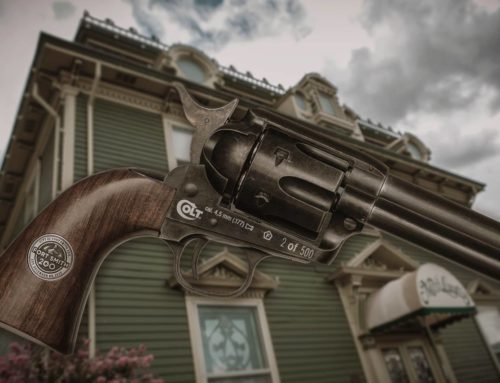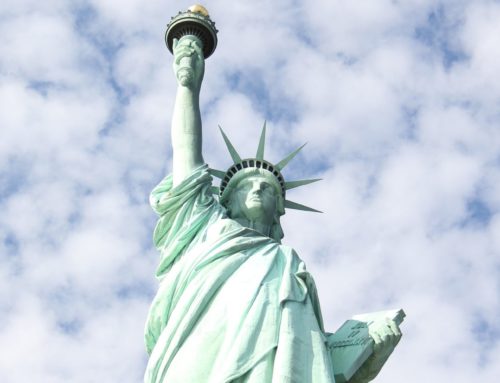Yes, but you have to have the money to pay for the blood draw and you have to blow into the Intoxilyzer/breathalyzer at the jail or police station beforehand. At Washington County Regional a blood draw costs about $231.
The Arkansas case of Kay v. State and Arkansas Code Annotated § 5–65–204(e) require that the arresting agency give a suspect “reasonable assistance” in obtaining a blood draw. The legislators require this because the breathalyzer can be inaccurate, the extent of which I will explain in my next blog post. If it is determined the suspect was not given reasonable assistance in obtaining an additional test, then the breathalyzer results must be excluded, which often results in a “not guilty” for the defense.
What does “reasonable assistance” mean though? At the bare minimum it means that before blowing into the intoxilyzer the police will have you read and sign a “Statement of Rights” form. The officer has to tell you in this statement of rights that you have a right to a blood draw, provide you with the opportunity to get the blood draw (unless he is the only police officer on duty, see Fiegel v. City of Cabot), and tell you that you will get a refund for the blood draw if you are later found not guilty of Driving While Intoxicated.
“Reasonable Assistance” beyond those basic requirements can be expanded by the trial court judge at their own discretion. Sometimes officers will tell suspects that there is no need for a blood draw because it will “come back higher anyway.” One famous DWI attorney John Collins out of Little Rock ( http://www.dwitrouble.com ) likes to compare this to reasonable assistance with washing a car. If you are ordered to give me reasonable assistance with washing my car, but when you come over you tell me “you know what, your car really isn’t that dirty, it is about to rain anyway, and it is going to cost you $5 to wash your car, are you sure you want to do this?” This is not reasonable assistance, and therefore officers shouldn’t be allowed to talk you out of your statutory right to a blood draw.
If you are charged with Driving While Intoxicated in Fayetteville, Fort Smith, Bentonville, Rogers, Van Buren, or Eureka Springs give us a call at 479-782-1125.
Here are some of the relevant statutes and case law to your right to a blood draw:
Statute requiring a police officer to advise person arrested for driving while intoxicated (DWI) of his right to an additional chemical test does not require the officer to advise the defendant that he should obtain an additional test in order to dispute the final result of the first test. Graham v. State, 2012, 389 S.W.3d 33, 2012 Ark. App. 90.
Police officer must provide driver with such assistance in obtaining additional blood-alcohol test as is reasonable under the circumstances. A.C.A. § 5-65-204(e)(2). Kay v. State, 1994, 877 S.W.2d 957, 46 Ark.App. 82.
As fact finder, trial court must decide whether assistance for additional alcohol testing provided by officer was reasonable under circumstances so as to permit admission of results from breathalyzer into evidence. A.C.A. § 5-65-204(e). Hudson v. State, 1993, 43 Ark.App. 190, 863 S.W.2d 323.
Police officer complied with statute governing right to additional alcohol test so as to render results from defendant’s breathalyzer test admissible in prosecution for driving while intoxicated; officer took defendant to local medical center for urine test, center could not perform urine test as requested by defendant, defendant refused alternatives to urinate in specimen cup and take it with him or to undergo blood test, and defendant did not have money to pay for requested test. A.C.A. § 5-65-204(e). Hudson v. State, 1993, 43 Ark.App. 190, 863 S.W.2d 323.
Defendant arrested for driving while intoxicated (DWI) was not entitled to blood test where defendant refused breathalyzer test. A.C.A. § 5-65-204(e). Calnan v. State, 1992, 310 Ark. 744, 841 S.W.2d 593.
Motorist was not denied opportunity to take breathalyzer test, and was not on that basis entitled to dismissal of DWI charge against him, given uncontroverted evidence that test was administered at least twice but that motorist was unable or unwilling to provide sufficient sample. McEntire v. State, 1991, 305 Ark. 470, 808 S.W.2d 762.
In light of city police officer’s inability to drive suspected drunk driver to nearby hospital for blood testing, as he would have left city without any police protection, police officer acted reasonably within meaning of statute requiring reasonable law enforcement assistance in allowing the drunk driver to obtain independent test results; breathalyzer test taken by officer was admissible in DWI prosecution. A.C.A. § 5-65-204(e)(2). Fiegel v. City of Cabot, 1989, 27 Ark.App. 146, 767 S.W.2d 539.
Failure to inform defendant that he had statutory right to additional breath test did not render inadmissible the results of breath test that was administered, where defendant was advised that he could have additional test of blood or urine and officer allowed defendant five or six phone calls to raise money for blood test, although no additional test was administered; limiting Mitchell v. City of North Little Rock, 15 Ark.App. 331, 692 S.W.2d 624. Qualls v. City of Clarksville, 1986, 19 Ark.App. 251, 719 S.W.2d 702.
Police officer’s assistance of defendant in obtaining additional blood alcohol tests was reasonable where officer told defendant he would take him to hospital for test and offered to allow defendant to use the telephone. Ark.Stats. § 75-1045(a)(3), (c)(3). Williford v. State, 1985, 284 Ark. 449, 683 S.W.2d 228.



